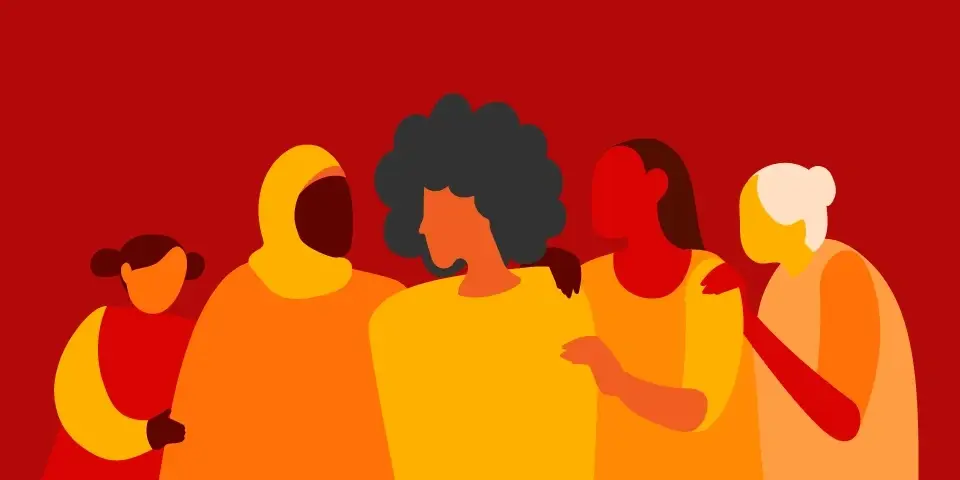Want to Help End Violence Against Women? Here's How to Offer Your Support

An estimated one-third of women and girls experience physical or sexual violence in their lifetime, with the UN estimating that violence against women is “as serious a cause of death and incapacity” as cancer. And the COVID-19 pandemic has made this situation even more dire; around the world, stay-at-home orders intended to protect the public have had the nasty side effect of trapping some women at home with their abusers.
Today is the International Day for the Elimination of Violence Against Women (IDEVAW), a day to acknowledge the extent of this problem and look for both local and global solutions. Many organizations are working hard to help domestic violence victims. Here's how you can support the effort.
Elimination of violence against women
Since 1981, women’s rights activists have observed anti-gender-based violence on November 25th to commemorate the deaths of the Mirabal sisters, political activists in the Dominican Republic who were murdered by order of dictator Rafael Trujillo. But it wasn’t until the year 2000 that the UN officially designated IDEVAW.
In 1993, the UN General Assembly issued its Declaration on the Elimination of Violence Against Women. It defined violence against women as, “any act of gender-based violence that results in, or is likely to result in, physical, sexual, or psychological harm or suffering to women, including threats of such acts, coercion, or arbitrary deprivation of liberty, whether occurring in public or in private life.”
The women most susceptible to such violence are often society’s most vulnerable young girls and older women; women who identify as lesbian, bisexual, transgender or intersex; migrants and refugees; indigenous women and ethnic minorities; women and girls living with HIV and disabilities; and those living through humanitarian crises.
A violence pandemic
Every year in the U.S., more than seven million women are victims of domestic violence. But the COVID-19 pandemic has exacerbated this toll. It is reported that in March 2020, domestic violence calls to law enforcement surged—in New York City alone, calls increased by 7% between January and March when compared to the same time period in 2019.
And this uptick in domestic violence isn’t isolated to the U.S., it has been noted globally as well. Around the world, domestic abuse helplines reported surges in calls in the first weeks of lockdown back in February and March. France, for example, reported a 30% increase in domestic violence calls in early April, while Spain reported an 18% increase for the first two weeks of its lockdown when compared to the same period the previous month.
What you can do
It is difficult to know just how significantly the pandemic has worsened domestic violence situations, but it’s clear that COVID-19 has shone a light on many existing social crises and inequities. It’s easy to feel helpless when such problems are laid bare, but there’s still a lot you can do to improve the safety of women and girls, both in your community and around the world:
- Check in. If you are concerned about the welfare of a neighbor, check in on them. To abide by social distancing guidelines, that may mean giving them a call. Or, if you don’t have their number, you can call local law enforcement for guidance.
- Offer support to shelters. You can do a quick Google search, find out the names of local women’s shelters, and call them to find out how you can support them—because they’re likely to be overwhelmed at this time.
- Donate money (or virtual volunteer time, if possible) to a nonprofit working to help women and children—you can get started with one of the organizations listed below.
- Visit the Domestic Violence National Hotline for further guidance on how to get help and how to support those who need help.
- Bookmark Futures Without Violence’s suggested resources for safety and support during the COVID-19 crisis.
Organizations hard at work
Are you looking for organizations to support with your money or volunteer efforts? Or perhaps you want a job that makes a positive impact on the lives of women and girls? Here are some social-impact organizations to look into:
- CARE works globally to help alleviate poverty and achieve social justice by empowering women in their communities.
- Girls Not Brides is a global partnership working to end child marriage, and calls for laws, policies, and programs that will positively impact the lives of girls.
- The National Coalition Against Domestic Violence works on legislation to help domestic violence victims and their children.
- Rape, Abuse, and Incest National Network (RAINN) is the U.S.’s largest anti-sexual violence organization. It also launched the National Sexual Assault Hotline.
- UltraViolet works to amplify issues that affect women, including domestic violence.
- Women for Women International supports marginalized women living through conflict and war.
***
Looking to support an organization near you? Check out the listings on Idealist.org.
Nisha Kumar Kulkarni is a writer and creative coach in New York City. She helps women living with chronic illness and mental health challenges to pursue their passion projects without compromising their health.


